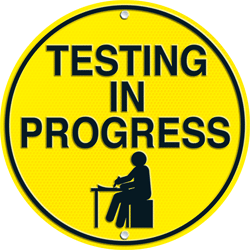Archives
- Newer posts
- April 2024
- November 2023
- October 2023
- August 2023
- May 2023
- February 2023
- October 2022
- August 2022
- July 2022
- May 2022
- April 2022
- March 2022
- February 2022
- June 2020
- March 2020
- February 2020
- January 2020
- December 2019
- November 2019
- October 2019
- September 2019
- August 2019
- July 2019
- June 2019
- May 2019
- April 2019
- March 2019
- February 2019
- January 2019
- December 2018
- November 2018
- October 2018
- September 2018
- August 2018
- July 2018
- June 2018
- May 2018
- April 2018
- March 2018
- February 2018
- January 2018
- December 2017
- November 2017
- October 2017
- September 2017
- August 2017
- July 2017
- June 2017
- May 2017
- April 2017
- March 2017
- February 2017
- January 2017
- August 2016
- June 2016
- April 2016
- March 2016
- February 2016
- January 2016
- July 2015
- June 2015
- Older posts

Automation Vs Manual Testing
Ok, I’m gonna come clean and say it outright that there is nothing called as 100% automated testing and since we don’t create software/apps for bots, manual testing is 100% necessary. Yes, all the Selenium and Coded UI guys are going to rain down on me with pointed fingers and buzzwords such as time-consuming, more investment on resources etc. Don’t hate me for it but here is my take on things.
We want to test our Apps / Software / Websites super quickly. Now how to get that done? “Let’s create an automated test” is the first thing that will come to mind. The top level executive will now have visions of the industrialisation of testing similar to those early cabinet factories. I don’t think that skilled cognitive work is factory work. That’s why it’s more important than ever to understand what testing is and how tools can support it.
Testing vs Checking
To understand this let me first explain Testing and Checking
Test (an instance of Testing) is when you evaluate a project by learning about it. To learn about the project you will need to explore and play with it (my term for experimenting).
A check (instance of Checking) is when evaluations are made by applying specific decision rules to the observed module of the project
Therefore testing encompasses checking, whereas checking cannot encompass testing. Now checking can be performed by a tool instead of a human, but testing can only be supported by tools. I am not saying that a check has to be automated, but having said that you can completely automate a check but a test would require human intervention. Let’s think of testing as an open-ended investigation whereas checking focuses on specific facts and rules related to those facts.
One common problem in the testing field is that checking is often confused with testing. Unlike a check, a test involves tacit and inference deducing knowledge (Sherlock much).
Human Vs Automated Tool
Let’s give a human (For the sake of this thought experiment I will call him Ted) a series of tasks to do to achieve an outcome. Now make the outcome incredibly impossible to achieve using the set series of task. (You can ask Ted to pick an egg, drop it on the floor without breaking it). Ted will not just sit there and die of hunger and thirst waiting to reach the outcome. Ted will stop and change the steps a little to get the outcome or just give up and go about his daily tasks. And that’s when you know for sure that Ted is human and all along was just pretending to be in the process he agreed to follow and tried to follow. Humans are constantly interpreting and adjusting their actions like Ted could have boiled that egg before dropping it which wasn’t specified in the set of tasks assigned to him – Could a tool do that?. This is inevitable. Whatever procedure Ted appeared to be following, he can do something else too.
Conclusion
Humans perform motivated actions which mean they observe, think and infer, often with underlying goals; tools on the other hand, can only exhibit programmed behaviour. The bottom line is: you can define a check easily enough through scripts in automated tests, but a human will do at least a little more or less during that check, unlike the programmed tool.
Please understand, an extensive role for tools in testing must be embraced as we work toward a future of powerful and efficient. Tools can help us in many ways far beyond the automation of checks. But having said that they are only for support for skilled human testers and can be a disaster in the hands of an unskilled tester.
– Vanessa Pinto
